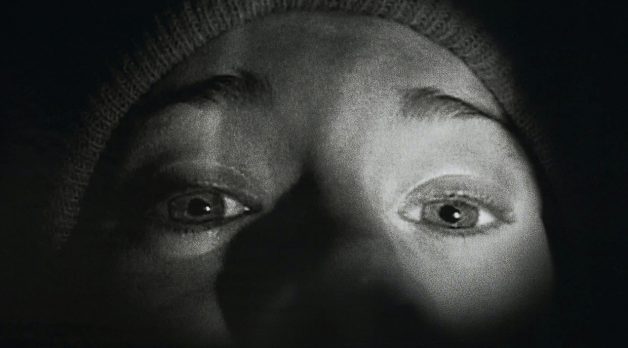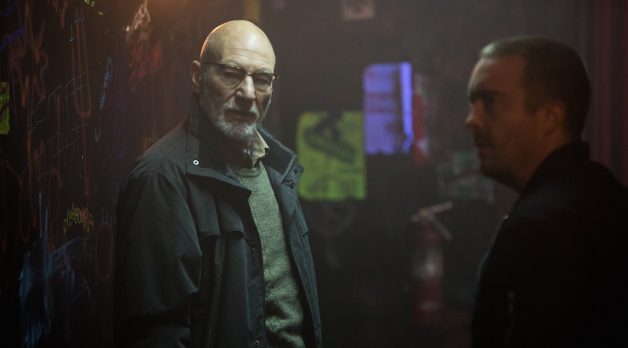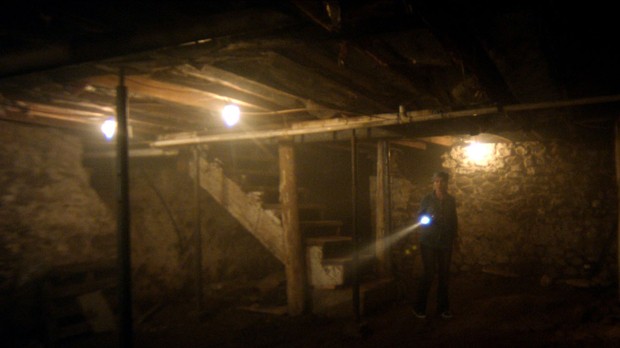Time and Tempo
by Nicholas Rombes
-
 Seducing the Future
Seducing the Future
To say that the transformations that film and film technology have undergone since Filmmaker’s inaugural year — 1992 — are revolutionary is an understatement. DVD was still on the horizon, DV camcorders were several years away and the notion of shooting and editing a full-length motion picture with no actual film seemed downright futuristic. There have been book-lengths’ worth of changes since that first issue, but here are just a few. I. Metadata The information surrounding a film has stretched far beyond mere publicity (the classical era) and merchandising (post-1977 Star Wars), becoming enmeshed within the very fabric of a… Read more
-
 Reactionary Wokeness
Reactionary Wokeness
Near the beginning of Peter Watkins’s still-astounding 1971 fictional dystopian documentary Punishment Park, one of the African-American defendants, Lee Robert Brown, is hauled in handcuffs before a makeshift, extra-legal tribunal in the sweltering California desert, where he is instructed to defend his counter-cultural militancy. He says, in part: “You talk as if this is some great, civilized, nonviolent place. It ain’t. America is as psychotic as it is powerful and violence is the only goddamned thing that will command your attention.” These lines floated to the top of my head while sitting though James Mangold’s Logan, widely praised for its… Read more
-
 Incoherent Cinema
Incoherent Cinema
In his 1986 book Hollywood from Vietnam to Reagan, film theorist Robin Wood explored, in a chapter entitled “The Incoherent Text: Narrative in the ’70s,” just how and why so many seminal films of that era were — ideologically — incoherent, unable to maintain a sustained and coherent vision of their protagonists as well as their fictive worlds. Wood did not mean incoherent in a pejorative sense; he wasn’t referring to movies that “failed” or that were poorly made. And he wasn’t talking about films that were deliberately chaotic or incoherent, but rather films that subconsciously reflected and distorted larger… Read more
-
 Trumpian Images
Trumpian Images
“Baby, there’s no storm outside.” —from Take Shelter In his now classic book From Caligari to Hitler: A Psychological History of the German Film, Siegfried Kracauer looked for cinematic hints, clues and warnings about the rise of Naziism and Hitler in pre-War Germany. Published by Princeton University Press in 1947 — just two years after the end of the war — his book was among the first to interrogate the deep architecture of film as a psychological state, one that does not directly mirror but rather reflects in a distorted way the “secret history” of mass psychology that, in his… Read more
-
 Against the Reality Industrial Complex
Against the Reality Industrial Complex
In August 2016 Bret Easton Ellis posted this on Twitter: It happened: HBO’s brilliant The Night Of effectively eradicates the notion of the two-hour American theatrical movie. By now this is a familiar refrain: that in the era of long-form television, the quaint notion of trying to tell a complex story in just a couple of hours is all but dead. It’s hard to write a “defense” of movies without coming across as reactionary, nostalgic, elitist, purposefully difficult or just cranky. (Under certain conditions, none of these are bad attributes.) So this isn’t so much a defense of movies as it… Read more
-
 Into the Cut: Is Terrence Malick’s Knight of Cups the Perfect Movie for our Instagram Era?
Into the Cut: Is Terrence Malick’s Knight of Cups the Perfect Movie for our Instagram Era?
We are approaching the 50th anniversary of the publication of Marshall McLuhan’s The Medium Is the Massage (was it a printing error, or a pun?), the book that put the phrase on the map, and whose ideas McLuhan had first advanced in his 1964 book Understanding Media. There he argued that “the personal and social consequences of any medium — that is, of any extension of ourselves — result from the new scale that is introduced into our affairs by each extension of ourselves, or by any new technology.” And, later: “Nobody is interested in TV until there are TV… Read more
-
 Underground Desires
Underground Desires
Probably like a lot of people, I loved underground cinema before I knew there was a name for it. My first encounter with the term was in a book that only used the word once, and not in relation to a certain category of films but a specific film: Underground U.S.A. (1980) directed by Eric Mitchell, who had acted in several Amos Poe films, most notably The Foreigner (1978). The book was Midnight Movies (1983) by J. Hoberman and Jonathan Rosenbaum, whose sharp, knife-like prose and generous, half- and full-page black-and-white frame enlargements worked to construct — if this is… Read more
-
 Blood, Simple
Blood, Simple
Creative freedom can be a real motherfucker. As anyone who has tried to make something — a story, a poem, a painting, a movie — can attest, the mantra “go ahead, make whatever you want” can lead to paralysis when it comes to actually creating something of distinction. Having unlimited creative options is like having none. There’s a long and rich history in cinema of self-conscious efforts to impose strictures on the filmmaking process, whether it be the Dogme 95 movement, the single-take technique (Victoria, directed by Sebastian Schipper, is a recent example), or the structural limitations imposed by the… Read more
-
 Creeping Time
Creeping Time
There is nothing new about Slow Cinema. From the very beginning of projected motion pictures in the late 19th century, the Lumière brothers utilized the single take, allowing for the temporal flow in the frame to coincide roughly with the audience’s experience of time. The fracturing of time through editing — borrowing from and keeping with the realist conventions of the novel — put cinema on the path of montage: the art of visual storytelling became equated with rapid movement across time (flashbacks and the implied “meanwhile…”) and space (multiple locations). Even cross-cutting — shifting back and forth between two… Read more
-
 The Need for Speed
The Need for Speed
It was sheer stupid curiosity, I’ll admit it, that lead me to Jupiter Ascending on a cold, sunny afternoon in early March. With a mixture of shame and defiance, I shelled out my 10 hard-earned dollars and entered the newly carpeted theater, where the movie began to play to a grand total of three souls. I had been intrigued by the terrible reviews, the sort that actually make a film sound interesting. The comparisons to Dune (although completely misplaced, in my book) helped with the allure, as did the notion that this was a cult film in waiting. There’s also… Read more










